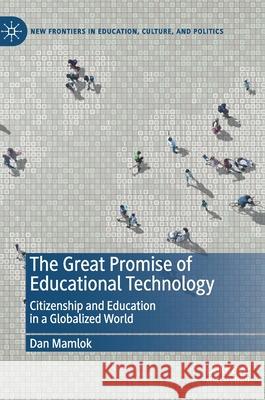The Great Promise of Educational Technology: Citizenship and Education in a Globalized World » książka
topmenu
The Great Promise of Educational Technology: Citizenship and Education in a Globalized World
ISBN-13: 9783030836122 / Angielski / Twarda / 2021 / 206 str.
The Great Promise of Educational Technology: Citizenship and Education in a Globalized World
ISBN-13: 9783030836122 / Angielski / Twarda / 2021 / 206 str.
cena 442,79
(netto: 421,70 VAT: 5%)
Najniższa cena z 30 dni: 424,07
(netto: 421,70 VAT: 5%)
Najniższa cena z 30 dni: 424,07
Termin realizacji zamówienia:
ok. 22 dni roboczych.
ok. 22 dni roboczych.
Darmowa dostawa!
Kategorie:
Kategorie BISAC:
Wydawca:
Palgrave MacMillan
Seria wydawnicza:
Język:
Angielski
ISBN-13:
9783030836122
Rok wydania:
2021
Wydanie:
2021
Numer serii:
000457017
Ilość stron:
206
Waga:
0.40 kg
Wymiary:
21.01 x 14.81 x 1.27
Oprawa:
Twarda
Wolumenów:
01
Dodatkowe informacje:
Wydanie ilustrowane











